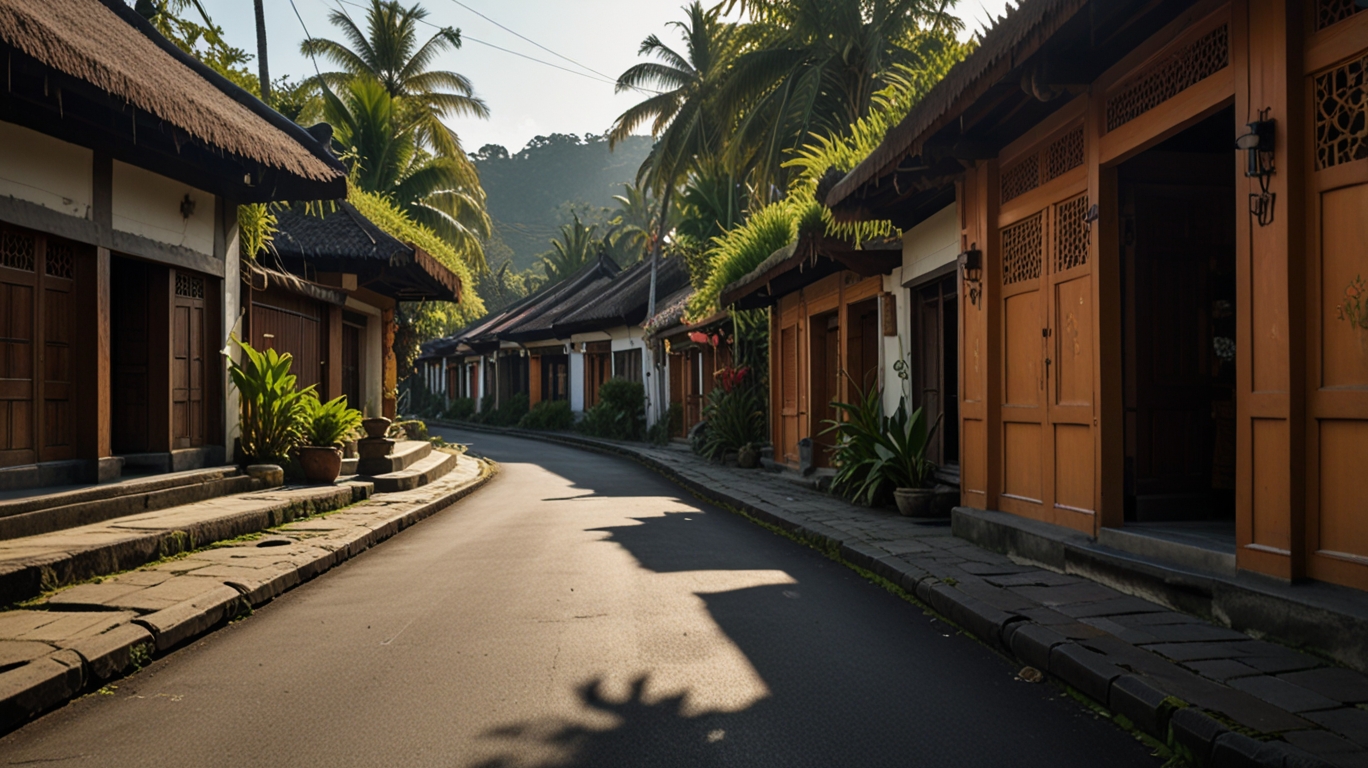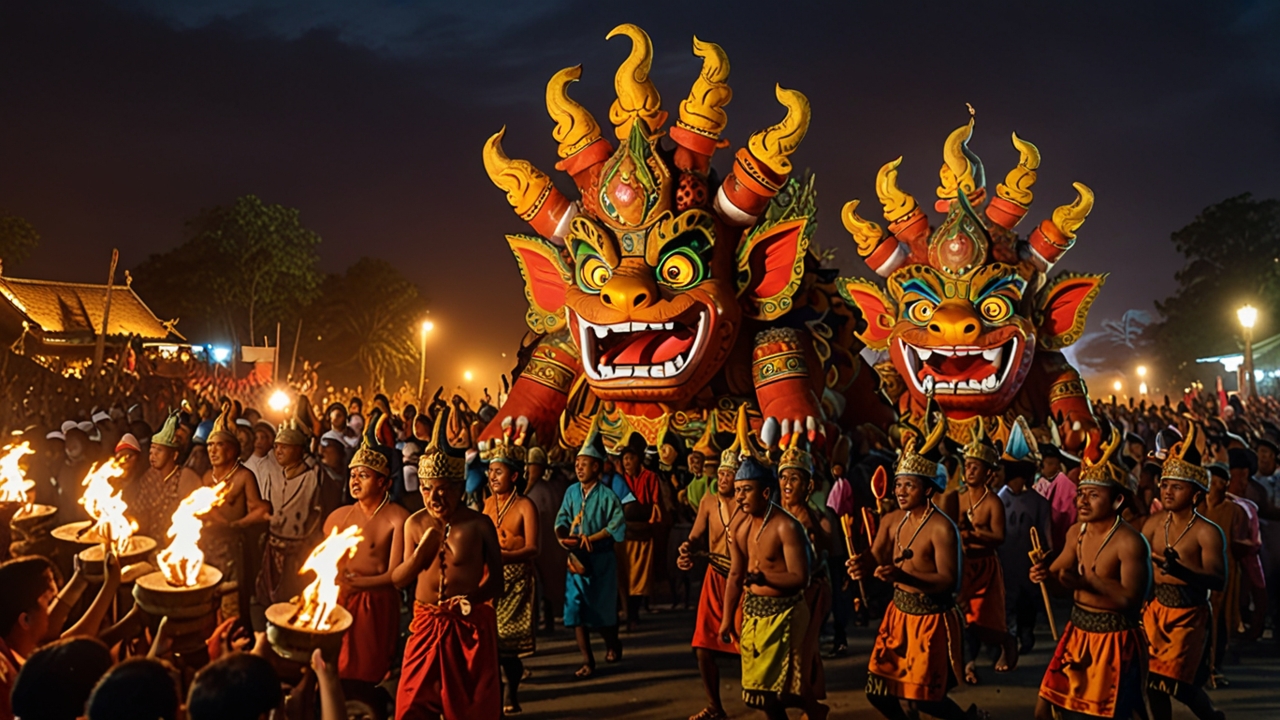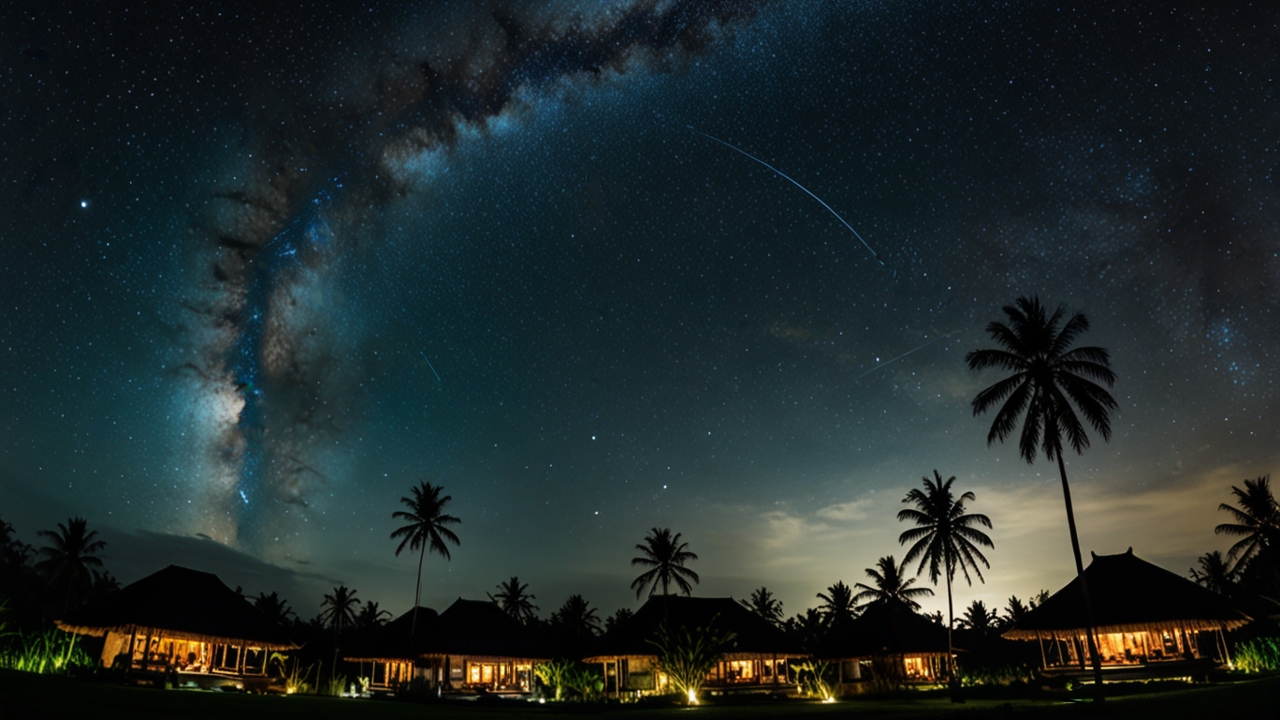Nyepi Day: How Silence Becomes a Spiritual Reset


Nyepi Day, often called the Balinese Day of Silence, is one of the most fascinating cultural and spiritual traditions in the world. It is celebrated primarily in Bali, Indonesia, and marks the Balinese New Year according to the Saka calendar, which is different from the Gregorian calendar followed globally. What makes Nyepi so remarkable is its unique way of observing the start of a new year. While most cultures celebrate New Year’s Day with loud parties, fireworks, and music, Nyepi takes the opposite approach—by embracing stillness, silence, and introspection. For 24 hours, the island of Bali comes to a complete halt. There is no traffic on the streets, no businesses open, and no public activity. Even Bali’s airport—the only international gateway to the island—closes during Nyepi. This isn’t just a day of silence; it is a profound practice of self-reflection, spiritual cleansing, and environmental harmony. Nyepi is more than just a tradition; it’s a lesson in how silence can become a powerful tool for personal and communal renewal in a world overwhelmed by constant noise.
What is Nyepi Day?

Nyepi is the most significant holiday for Balinese Hindus, observed as the first day of the new year in the Saka calendar, which is a lunar calendar used primarily in Bali. The name “Nyepi” originates from the Sanskrit word sepi, which means silence or quiet. The essence of Nyepi lies in creating absolute stillness throughout the island for a full day—24 hours of uninterrupted calm where life slows down completely. On Nyepi, everyone is expected to follow strict rules called Catur Brata Penyepian, which includes refraining from lighting fires (amati geni), abstaining from working (amati karya), avoiding travel (amati lelungan), and shunning entertainment or pleasures (amati lelanguan). Many Balinese also fast and meditate during this time, focusing entirely on spiritual practices rather than worldly distractions.
The restrictions are not symbolic—they are enforced across the entire island. Streets are empty, markets are closed, and even internet services are often cut off to maintain the purity of silence. Tourists staying on the island are required to comply as well by staying indoors and keeping noise to a minimum. For 24 hours, Bali transforms into an oasis of peace, offering an experience that is both surreal and deeply transformative. This practice is not only a religious observance but also an act of collective mindfulness that fosters harmony among individuals, communities, and nature.
The Spiritual Significance of Silence

Nyepi is much more than an unusual holiday—it is a sacred ritual aimed at cleansing the mind, body, and soul. For Balinese Hindus, silence is not merely the absence of sound; it is a profound spiritual state that creates space for self-reflection and communion with the divine. The 24-hour pause is designed to help individuals disconnect from the distractions of the material world and reconnect with their inner self. During Nyepi, people pray, meditate, and reflect on their actions over the past year. They seek forgiveness, make spiritual resolutions, and prepare themselves to enter the new year with purity of thought and intention.
This silence also holds a symbolic meaning in Balinese Hindu philosophy. It represents the temporary withdrawal from worldly chaos to restore spiritual balance and harmony. By refraining from work, entertainment, and unnecessary consumption, people are reminded that life is not solely about productivity or indulgence but about maintaining equilibrium within themselves and with the world around them. In today’s fast-paced digital era, where constant stimulation has become the norm, Nyepi’s emphasis on mindfulness and inner peace stands as a timeless lesson on the value of stillness.
The Rituals Before and After Nyepi

Nyepi is not an isolated event; it is part of a series of sacred rituals that span several days, making the celebration deeply immersive and culturally rich. The preparations begin with Melasti, a large-scale purification ceremony that takes place a few days before Nyepi. During this ritual, sacred objects from temples are carried in colorful processions to the sea, rivers, or holy springs to be cleansed. This symbolizes the washing away of spiritual impurities and negative energies accumulated over the past year.
The day before Nyepi is filled with excitement and energy, culminating in the famous Ogoh-Ogoh parade. These parades feature giant, elaborately crafted demon effigies made of bamboo and papier-mâché. Each effigy represents evil spirits and human vices, such as greed, anger, and ignorance. Villagers parade these figures through the streets amid loud traditional music, fire torches, and chanting, creating a dramatic spectacle meant to scare away malevolent forces. After the parade, the Ogoh-Ogoh effigies are burned in a symbolic act of purification, signifying the destruction of negativity before entering the new year.
Following the 24 hours of silence, Ngembak Geni marks the return to normal life. On this day, Balinese families visit one another to ask for forgiveness, reconcile differences, and strengthen bonds of unity. This gesture of forgiveness reflects the essence of Nyepi—starting the new year with a clean slate, free from resentment and discord. Together, these rituals illustrate how Nyepi is not only a spiritual practice but also a celebration of community, harmony, and renewal.
How Tourists Experience Nyepi

For travelers, experiencing Nyepi in Bali can be both challenging and magical. Unlike other tourist attractions or cultural festivals, Nyepi demands participation through stillness rather than activity. Visitors are expected to stay inside their hotels or villas for the entire day, keeping lights dim and noise to a minimum. Some might initially find the restrictions inconvenient, but many tourists end up appreciating the rare opportunity to slow down and disconnect from their fast-paced lifestyles.
Hotels and resorts in Bali prepare for Nyepi by offering guests various indoor activities that align with the spirit of the day, such as yoga classes, Balinese spa treatments, and meditation sessions. Meals are served quietly, and entertainment is minimal to preserve the atmosphere of silence. One of the most awe-inspiring experiences for visitors during Nyepi is stargazing. With no artificial lights, the night sky becomes astonishingly clear, revealing countless stars and the dazzling Milky Way. Many describe it as one of the most breathtaking sights they have ever witnessed, making Nyepi a truly unforgettable cultural experience.
Why Nyepi Matters in Modern Times

Nyepi’s message of silence, reflection, and harmony is more relevant today than ever before. In a world consumed by constant noise, technological distractions, and environmental degradation, the idea of an entire island pausing for 24 hours carries profound meaning. Nyepi reminds us that progress does not always mean constant activity—sometimes it means slowing down, turning inward, and restoring balance. The environmental benefits of Nyepi are also significant. With no vehicles on the roads and minimal use of electricity, carbon emissions and energy consumption drop dramatically for a day, giving nature a rare moment of relief.
On a personal level, Nyepi teaches the importance of mindfulness and self-care. It shows that silence is not emptiness but a space where growth and transformation can occur. It encourages people to rethink their relationship with time, technology, and nature. For those who have the privilege to experience it, Nyepi is more than a cultural holiday—it is a powerful reminder that inner peace is just as important as external achievement. In many ways, Nyepi offers a universal lesson: the world does not end when we stop; instead, it becomes clearer, calmer, and more meaningful.
RELATED POSTS
Love in Stillness: Couples Reflecting Together During Nyepi
Nyepi, also known as the Balinese Day of Silence, is one of the most profound cultural and spiritual observances in Indonesia. Taking place on the Hindu New Year according to the Saka calendar, Nyepi is not celebrated with noise, festivals, or fireworks, but rather...
